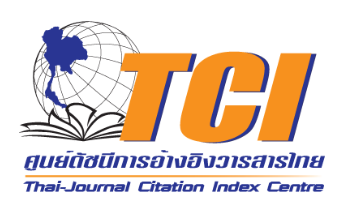From Social Background to Artistic Expression: The Design and Cultural Value of Decorative Patterns on Bronze Mirrors During the Song, Liao, and Jin Dynasties in China
DOI:
https://doi.org/10.69650/jcdrhs.2025.766Keywords:
Cultural Heritage, Contemporary Artistic and Design Values, China Song, Liao and Jin Dynasties, Bronze Mirror Decorative PatternsAbstract
From the 10th to the 13th century AD, China entered a historical period of coexistence of multiple regimes such as the Song, Liao, and Jin dynasties, showing rich diversity in culture and art. The design of bronze mirror decorative patterns during this period showed a high degree of cultural integration and artistic innovation, and its cultural value and design value were fully reflected, which was highly favored in the modern collection market. The purpose of this study is to analyze the market value, cultural value and design value of bronze mirror decorative patterns in China during the Song, Liao, and Jin dynasties from the social background to the artistic expression level. This study uses the research methods of literature research, expert interviews and questionnaire surveys to collect data on the value of bronze mirror decorative patterns during the Song, Liao, and Jin dynasties, and analyzes the collected data. The research results show that the bronze mirror decorations of the Song, Liao, and Jin dynasties reflect unique local culture, art, social customs, and religious beliefs, holding significant cultural, design, and market value, contributing to China’s national cultural confidence. Suggestions and limitations of this research: In modern society, characterized by information and diversity, the bronze mirror decorations of these dynasties can align with contemporary trends and inspire designers with their formal beauty and cultural depth. Future research should strengthen interdisciplinary studies, explore the multiple meanings of patterns, enhance aesthetic analysis, and innovate design elements; future focus should be on the contemporary design application of Song, Liao, and Jin dynasty bronze mirror patterns.
References
Cahill, S. E. (2005). The Moon Stopping in the Void: Daoism and the Literati Ideal in Mirrors of the Tang Dynasty. Cleveland Studies in the History of Art, 9, 24-41. https://doi.org/10.1484/J.CSHAC.2.301910
Cammann, S. (1955). Significant Patterns on Chinese Bronze Mirrors. Archives of the Chinese Art Society of America, 9, 43-62. Retrieved from https://www.jstor.org/stable/20066972
Cui, Y. (2020). Revitalization and Breakthrough: Research on Realistic Thematic Creation. Popular Literature, (11), 25-26. Retrieved from https://m.fx361.cc/news/2021/0127/11368421.html
Haixia, Y. (2009). A Preliminary Study on the Development of Bronze Mirrors during the Song, Liao and Jin Dynasties. Beauty and Times, (11), 39-41. https://doi.org/10.16129/j.cnki.mysds.2009.11.030
Haixia, Y. (2010). Classification of Bronze Mirrors with Flower and Bird Patterns from the Song, Liao and Jin Dynasties. Beauty and Times, (8), 35-37. https://doi.org/10.16129/j.cnki.mysds.2010.08.036
Jing, T. (2020). Innovation and Application of Plant Patterns on Tang Dynasty Bronze Mirrors in Modern Jewelry: Taking the Jewelry “Chan” Series as an Example (Master’s Thesis). Northwestern University, China. https://doi.org/10.27405/d.cnki.gxbdu.2020.001631
Jinghan, W. (2023). Research on the Innovative Design and Application of Bronze Mirror Patterns in the Tang Dynasty (Master’s Thesis). Xijing University, China. https://doi.org/10.27831/d.cnki.gxjxy.2023.000092
Jun, N., Li, P., & Yun, M. (2024). Artistic Characteristics and Innovative Applications of Traditional Elements of Liao Dynasty Bronze Mirrors. Fashion Designer, (4), 54-59. https://doi.org/10.20100/j.cnki.cn11-4548/ts.2024.04.010
Weiliang, G. (2013). History of Chinese Bronze Mirrors. China: Chongqing Publishing House. Retrieved from https://book.douban.com/subject/25730399
Xiangxing, K. (1992). Illustrated Dictionary of Chinese Bronze Mirrors. China: Cultural Relics Publishing House. Retrieved from https://books.google.co.th/books?id=oiwQAQAAMAAJ
Xiaomin, Z. (2009). A Lesson from the Ancient-The Modern Analysis on the Modeling and Emblazonry of Mirror (Master’s Thesis). Jilin University, China. Retrieved from https://kns.cnki.net/KCMS/detail/detail.aspx?dbname=CMFD2009&filename=2009098427.nh
Xiawei, Y. (2021). Study on the Decoration of Song Dynasty Bronze Mirrors (Doctoral Dissertation). Nanjing University of the Arts, China. https://doi.org/10.27250/d.cnki.gnjyc.2021.000010
Yue, Y. (2024). Research and Application of Plant Patterns in Song and Yuan Dynasties. The Journal of Fashion Design and Engineering, (3), 48–50. Retrieved from https://oversea.cnki.net/kcms/detail/detail.aspx?dbcode=CJFD&filename=SJGC202403017&dbname=CJFDLAST2024
Downloads
Published
How to Cite
Issue
Section
License
Copyright (c) 2025 Journal of Community Development Research (Humanities and Social Sciences)

This work is licensed under a Creative Commons Attribution 4.0 International License.









